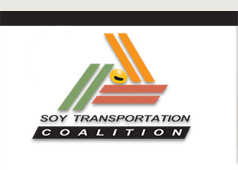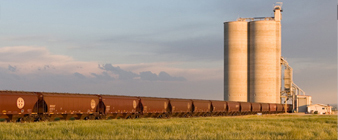 |
 |
|
| eNews • May 2014 | ||
| Promoting a Cost-Effective, Reliable and Competitive Transportation System |
||
 Obama administration sends transport bill to U.S. Congress
Obama administration sends transport bill to U.S. Congress
The Obama administration on Tuesday sent a bill to Congress that aims to cover an expected shortage in money to spend on America's bridges, roads and transit systems, but Republican opposition could prevent its passage.
Funding for the four-year, $302 billion legislation would come partly from ending certain tax breaks for businesses, a provision opposed by many Republicans. Transportation Secretary Anthony Foxx said the administration would be open to other ideas to raise the money.
"At the end of the day, the important thing is that we pass a bill that avoids a destructive collapse in funding that would threaten hundreds of thousands of jobs and inflict unnecessary damage on our economy," Foxx said on a media teleconference.
The Highway Trust Fund traditionally has been bankrolled by taxes on gasoline and diesel, but with fuel use stagnant the fund is not bringing in enough revenue to cover infrastructure needs. It is projected to run out of money as soon as August.
Republican Representative Bill Shuster, chairman of the House Transportation Committee, said in a statement he is sure "won't agree with all the details" in the bill.
Even some Democrats were cool to the proposal. Senator Jay Rockefeller, chairman of the Commerce, Science and Transportation Committee, called it "one step in the right direction." He said finding ways to pay for the bill would not be easy and a number of funding options should be considered.
Congress has all but ruled out raising the 18.4-cents-a-gallon tax on gasoline and the 24.4-cents-a-gallon levy on diesel, which is the main source of funding for the trust fund.
Foxx said some states are already canceling or delaying transportation projects "because of the uncertainty at the federal level."
The administration's proposal would address the trust fund's looming shortfall and provide an additional $87 billion to pay for a backlog of repairs such as structurally deficient bridges and aging transit systems. A report last week by the American Road and Transportation Builders Association estimated that roughly one in 10 U.S. bridges, more than 63,000, is in urgent need of repair. Many are part of the interstate highway system.
To help boost transportation funding at the state level, the legislation would loosen rules on when states are permitted to establish tolls on interstate highways.
The bill would also boost the National Highway Traffic Safety Administration's efforts to oversee automotive safety. It would increase to $300 million from $35 million the civil penalties that NHTSA can levy against automakers who fail to act quickly on vehicle recalls.
NHTSA is investigating why General Motors waited until February to recall 2.6 million cars for faulty ignition switches when it first learned of the defect more than 10 years ago.
Peter Rogoff, acting under secretary of transportation, said the bill would strengthen NHTSA authority to require automakers to remove vehicles from the market when a defect is discovered.
Source: Reuters
Soy Transportation Coalition |
|
